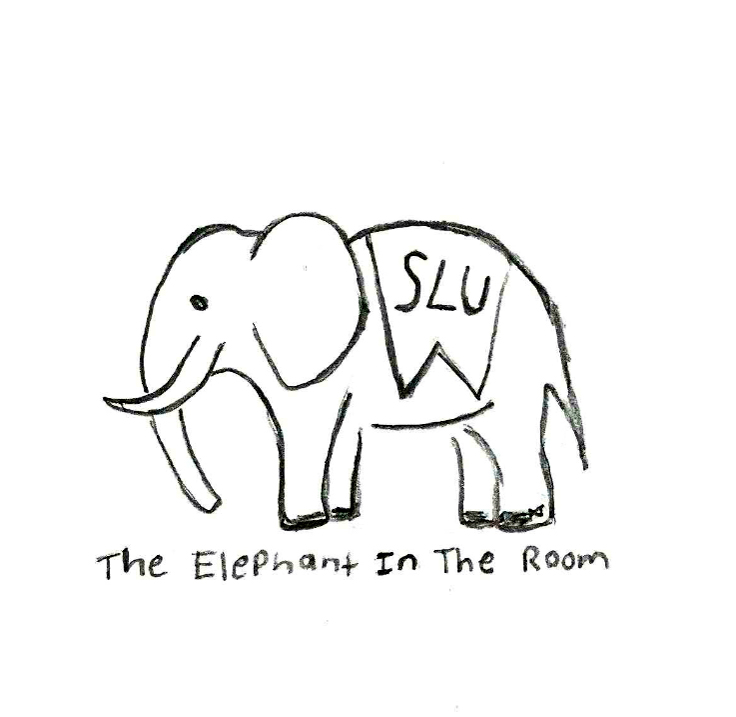For the first time in six years, St. Lawrence University has two active political party clubs—Republicans and Democrats. SLU Republicans was revived on Oct. 10 by campus GOP President Peter Tully ’25 and Vice President Benjamin LeStage ’24, introducing another student political club just over a year before the 2024 presidential election.
Tully and LeStage believe that SLU GOP can help reduce political division. They decided to revive the club when they discovered its Presence page was on the verge of being deactivated. “We noticed a lack of diversity of thought on campus,” said Tully. “We thought we’d take over and have a safe place for conservatives on campus.”
The SLU Democrats club has technically been active longer than their GOP counterpart. However, they also just recently returned last semester. SLU Dems President Eliza Brown ’24, like Tully and LeStage, wanted to improve SLU’s political climate. “I think it can have an effect on the political apathy on campus,” she said when speaking of her club. Brown also wanted to create a safe place for Dems who felt displaced when moving to the majority GOP St. Lawrence County for college.
Visiting Assistant Professor of Government Patrick Rickert believes that political clubs, like SLU GOP, will become more relevant as the 2024 presidential election approaches. “I think elections get people excited; SLU Republicans and SLU Democrats offer students a perfect venue to channel that excitement,” he said. Additionally, Rickert maintains that having clubs for individuals on either side of the aisle is essential to a liberal arts education. “Intellectual pluralism is at the heart of what universities should do; students should be challenged with beliefs that they do not hold,” he said. “You can only do that effectively if you have somebody espousing those beliefs.”
Current Legislative Director for New York State Assemblyman Scott Gray (R-NY), Ilando Capolino, was a member of the Republican Club at St. Bonaventure University in Olean, New York He said that SBU had clubs for both mainstream political parties but that they were limited by restrictions on bringing speakers to campus unless both clubs were able to. “The requirements tied their hands, and they couldn’t grow; it was the school’s fault,” said Capolino, explaining that his club was never able to bring a speaker to campus since SBU’s Dems club did not. “I was a member for all 4 years, but it got so boring that I stopped going.”
Current member of SLU Dems Elijah White ’26 hopes that SLU administrators will avoid interfering with political clubs, like the administration did at SBU. “Stay as far away from it as possible,” he said. White also believes that unlike SBU, political clubs at SLU can help each other grow while avoiding conflict. “It’s not one side versus the other,” he said. “That’s not the case.”
Former President of the College Democrats of New York and current candidate for Cortland County Legislator, Reed Cleeland, believes that college political clubs allow students to better understand political issues that matter to people outside of their university’s bubble in ways they cannot on social media platforms. “Don’t think if you’re a social media warrior that you’re making a change in this country, you’re not,” he said. “College students need to ask people what they care about. Real problems are not going on in a college student’s universe.”
Cleeland also believes that anytime students express their political beliefs, they risk being socially ostracized — or in colloquial terms — canceled. “There is a challenge of cancel culture on campuses. We leftists need to be conscious of that,” he said. “It’s not a matter of creating a safe place; it’s a matter of creating a campus with free and open dialogue.”
During the 2022 midterm elections, neither SLU Dems nor SLU GOP were active clubs. Now, as the 2024 general election nears, SLU students will have multiple avenues for displaying and discussing their political beliefs no matter their party affiliation. Rickert believes that these new options are necessary for creating a healthy political environment at SLU ahead of such a consequential election. “When views are suppressed, students feel uncomfortable holding beliefs on campus,” he said. “I mean, what is free speech for?”



